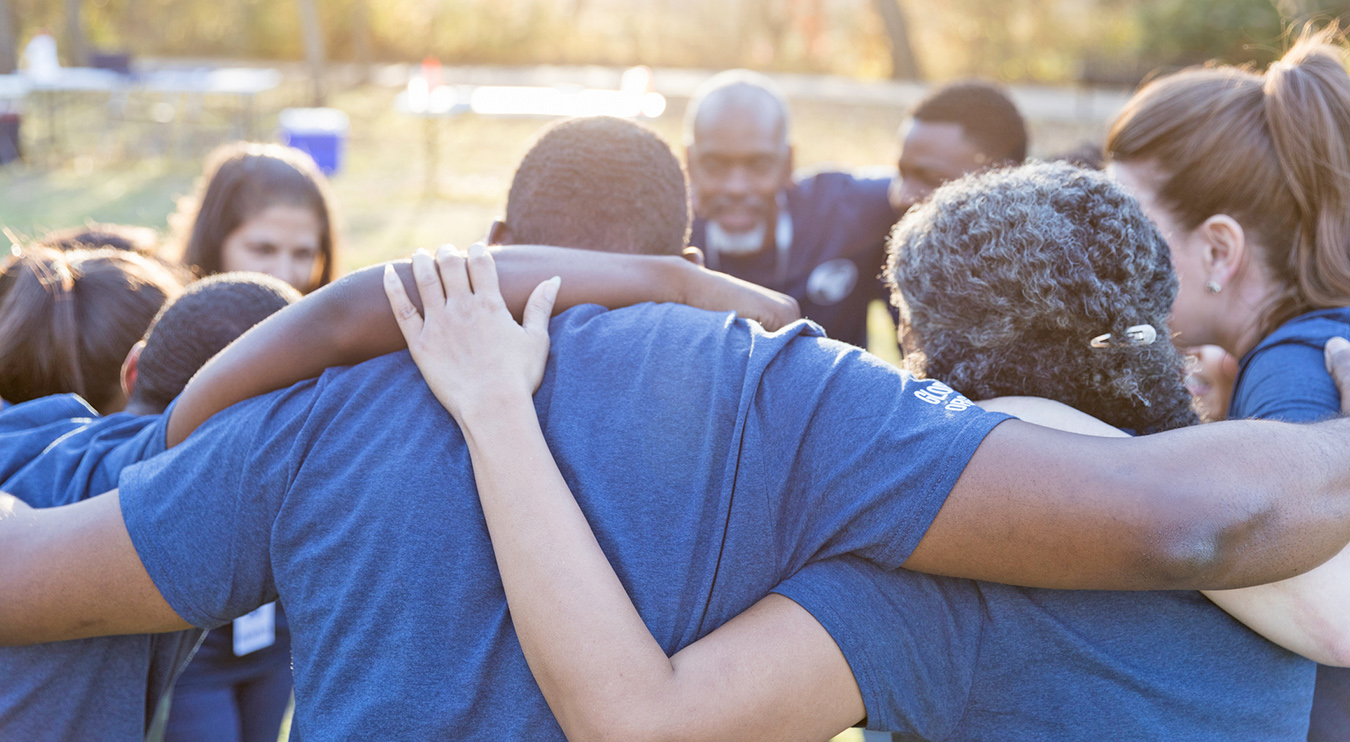Editor’s note: The sharing of any non-VA information does not constitute an endorsement of products and services on the part of VA. Veterans should verify the information with the organization offering.
My spouse retired from military service in 2024. His active-duty career had seen him through years of combat deployments, duty assignments around the world, physical strains on his body and distance from his family.
But the mental toll of military life and transition is what deeply concerned me.
Suicide is the second leading cause of death among Veterans under the age of 45, and more than 40% of Veterans say they experience high levels of difficulty when transitioning (Stop Soldier Suicide). I wanted to prepare us for the potential mental health challenges and adjustment to civilian life. (Read the 2024 National Veteran Suicide Prevention Annual Report).
I turned to Blue Star Families for guidance. As a trustworthy national nonprofit organization that works to support military connected families where they live and serve, they offer countless programs and opportunities for service members, families, Veterans and civilian supporters. Their Blue Star Support Circles Upstream Solutions to Crisis program was exactly what I was looking for.
Blue Star Support Circles are facilitated, non-clinical cohorts for Veteran and service member supporters.
Family members and friends are best positioned to identify and support a Veteran or service member heading toward crisis as we are the people who see the signs and symptoms firsthand. The free program is designed for anyone who wants to understand suicide and stress due to combat, military life and Veteran challenges. Even better, the program is virtual and confidential to allow participants to engage and ask questions in a safe environment.
I entered my cohort last year with a bit of trepidation and low expectations. I have attended suicide prevention training multiple times and felt like there was no more to learn. I’m happy to say that I was wrong. This program is unlike others and includes:
- Peer Connection: I felt that I could trust my fellow peers in my cohort and our leader. The virtual sessions always felt safe and confidential, and I could ask questions big and small. Participants also have access to a private, closed virtual group in the Blue Star Neighborhood, the organization’s virtual platform for members. This only enhanced the connection between us.
- Expert Presentations: There were presentations from multiple partner organizations including Tragedy Assistance Program for Survivors (TAPS), Psych Armor, American Red Cross, Lenny Learning and Spiritune. Each brought new information and strategies; whether it was about recognizing suicidal warning signs, learning how to talk about suicide, or a free membership to Spiritune for music therapy, all were amazing.
- Free Resources: I mentioned the free membership to Spiritune, but that is just the start. There were Blue Star Families resources like the Program Workbook to guide one through the program and free Psych Armor courses to continue one’s learning. They also offer participants the opportunity to receive gun locks, firearms safes and medicine safes to promote lethal means safety at home and in their community.
After eight weeks of my cohort, I left feeling better prepared to see the signs and symptoms of a crisis. As my spouse and I navigated transition and our next phase of life, I felt better prepared to support him in his mental health because of Blue Star Support Circles. This free program changed my perspective and gave me the tools I will need to prevent a crisis before it occurs.
Learn more about the free, virtual Blue Star Support Circles Upstream Solutions to Crisis, including how to sign up.
If you’re a Veteran in crisis or concerned about one, contact the Veterans Crisis Line to receive 24/7 confidential support. You don’t have to be enrolled in VA benefits or health care to connect. To reach responders, Dial 988 then Press 1, chat online at VeteransCrisisLine.net/Chat, or text 838255.
Topics in this story
Link Disclaimer
This page includes links to other websites outside our control and jurisdiction. VA is not responsible for the privacy practices or the content of non-VA Web sites. We encourage you to review the privacy policy or terms and conditions of those sites to fully understand what information is collected and how it is used.
Statement of Endorsement
Reference herein to any specific commercial products, process, or service by trade name, trademark, manufacturer, or otherwise, does not necessarily constitute or imply its endorsement, recommendation, or favoring by the United States Government, and shall not be used for advertising or product endorsement purposes.
More Stories
MyVetBENEFITS is a free, easy-to-use third-party mobile app and website that matches Veterans to the benefits they’re most likely eligible for.
Together We Served has launched a new free service called "Veteran Buddy Link" to assist Veterans seeking friendship and support.
Since 2010, more than 36,000 individuals have benefited from ACP's mentorship program, which equips Veterans and military spouses with the tools and resources to pursue meaningful employment.






Interesting
Once a month our American Legions we get together and it’s called coffee chat, I made it an attempted to speak with veterans, and now I have opened it up to all of our surrounding community